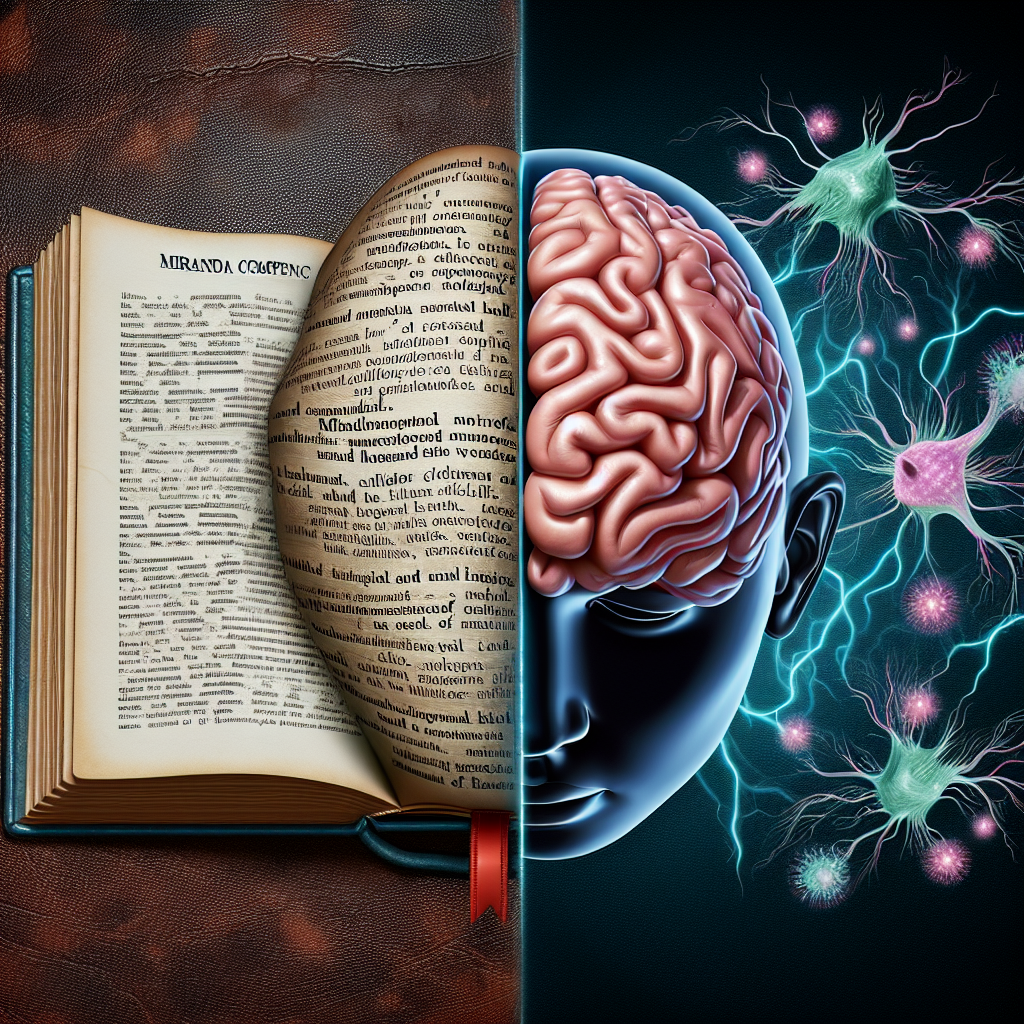
Introduction
Ever found yourself pondering how the complexities of mental health intertwine with legal systems? Particularly when it comes to the Miranda rights, an essential aspect of the criminal justice system, the intersection of mental health and Miranda competence becomes profoundly significant. Imagine a scenario where an individual, struggling with mental health issues, is apprehended and questioned by law enforcement. Are they fully aware of their rights? Can they comprehend the implications of waiving those rights? This article delves deep into The Intersection of Mental Health and Miranda Competence: A Legal Perspective, examining the nuances and implications for individuals, legal practitioners, and society as a whole.
Understanding Miranda Rights
A Brief Overview
Miranda rights, established in the landmark case Miranda v. Arizona (1966), require law enforcement to inform individuals of their rights upon arrest. These rights include the right to remain silent and the right to legal counsel. The essence of these rights is to protect individuals against self-incrimination and to ensure informed consent during police interrogations.
The Need for Competence
The concept of competence, particularly in relation to Miranda rights, refers to an individual’s ability to understand and exercise their legal rights effectively. This is where mental health comes into play. A person’s mental health status may significantly influence their competence, rendering them unable to make informed decisions regarding their rights.
Mental Health: A Legal Lens
The Role of Mental Health in Legal Competence
Mental health conditions such as schizophrenia, severe anxiety, and cognitive impairments can impact an individual’s capacity to fully grasp the consequences of their actions. For instance, a person experiencing a manic episode may not have a clear understanding of what it means to "remain silent" or "seek legal counsel."
Legal Standards and Definitions
Legal definitions of competence can vary by jurisdiction, but the general principle is that competence requires a rational understanding of the proceedings and the ability to make informed choices. This section will delve into the variances among states and the legal implications of these differences.
Case Studies: Real-World Applications
Case Study 1: Hernandez v. State
In this case, the defendant, Carlos Hernandez, was arrested and made incriminating statements to police officers. During a later assessment, it was revealed that Hernandez had been diagnosed with bipolar disorder and had been experiencing a manic episode during the arrest. The court ultimately found that he had not been competent to waive his Miranda rights. This case underscores the importance of considering mental health when evaluating Miranda competence.
Analysis
What makes this case significant is how it highlights the critical need for law enforcement and the justice system to understand the mental health status of individuals during the arrest and interrogation processes.
Case Study 2: State v. Davis
In State v. Davis, the defendant, who had a history of depression and anxiety, was interrogated without an understanding of his rights. The state argued that he had waived his Miranda rights after being informed of them. However, the court ruled in favor of Davis, emphasizing that his mental health condition hindered his ability to comprehend his rights.
Analysis
This case shows the judiciary’s growing recognition of the intersection of mental health and the legal requirements of Miranda competence.
Case Study 3: United States v. Haynes
In this federal case, the defendant argued that his PTSD impaired his ability to understand his Miranda rights. The court employed a forensic psychologist to assess Haynes’s mental state at the time of questioning, ultimately ruling that he lacked the competence necessary to waive his rights.
Analysis
This decision reinforced the idea that mental health assessments should play a central role in evaluating competence regarding Miranda rights.
The Ethical Considerations
Responsibilities of Law Enforcement
Law enforcement officials are often the first point of contact in the criminal justice system. With the increasing awareness of mental health issues, they must be trained to recognize signs of mental health conditions and adjust their interrogation methods accordingly.
The Role of Legal Professionals
Defense attorneys and public defenders should have a keen understanding of the mental health of their clients. Adequate training and resources can ensure that individuals are not unjustly convicted due to misunderstandings of their mental state.
The Future of Mental Health and Legal Competence
Policy Changes and Recommendations
As more information becomes available regarding mental health and its impact on legal competence, policy changes are crucial. Lawmakers should consider:
- Mandating mental health screenings for individuals in the criminal justice system.
- Providing training for law enforcement on mental health issues.
- Ensuring that defense attorneys receive regular updates on mental health-related legal standards.
Conclusion
In conclusion, navigating The Intersection of Mental Health and Miranda Competence: A Legal Perspective requires a delicate balance of law, ethics, and a deep understanding of psychological principles. Both legal professionals and law enforcement must work together to ensure that individuals are treated with the understanding they deserve, especially when mental health is at stake. The shared responsibility is to protect not just the rights of the accused but the integrity of the legal process itself.
Actionable Insights
- Individuals should advocate for their mental health needs, especially in legal contexts.
- Legal professionals should invest time in understanding mental health issues.
- Society should foster a culture of empathy, acknowledging that mental health is intricately woven into our legal system.
FAQs
1. What are Miranda rights?
Miranda rights inform individuals of their right to remain silent and to have legal counsel during interrogations.
2. How does mental health affect Miranda competence?
Mental health conditions can impair an individual’s understanding of their rights, potentially rendering them incompetent to waive these rights.
3. Can a confession be used against me if I was mentally unstable during interrogation?
Yes, but courts may rule in your favor if your mental instability significantly hindered your understanding of your rights during the interrogation.
4. What should I do if I believe I am unfit to stand trial due to mental health issues?
Consult a legal professional who specializes in mental health law to discuss your situation and explore possible avenues.
5. How can law enforcement improve interactions with mentally ill individuals?
Through specialized training, mental health crisis intervention techniques, and awareness of mental health signals, law enforcement can better serve individuals in distress.
By understanding The Intersection of Mental Health and Miranda Competence: A Legal Perspective, we are empowering ourselves and society to act with compassion, awareness, and a commitment to justice. Let’s start the conversation that leads to understanding and reform today.















